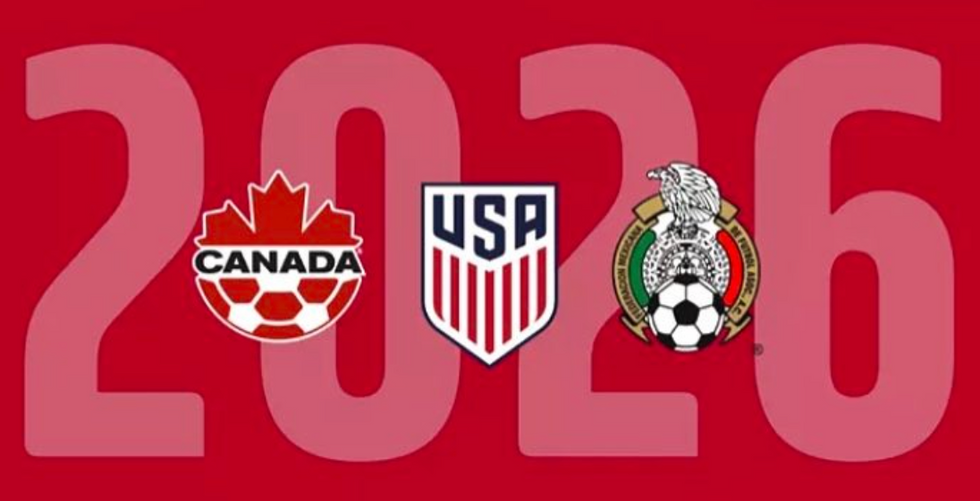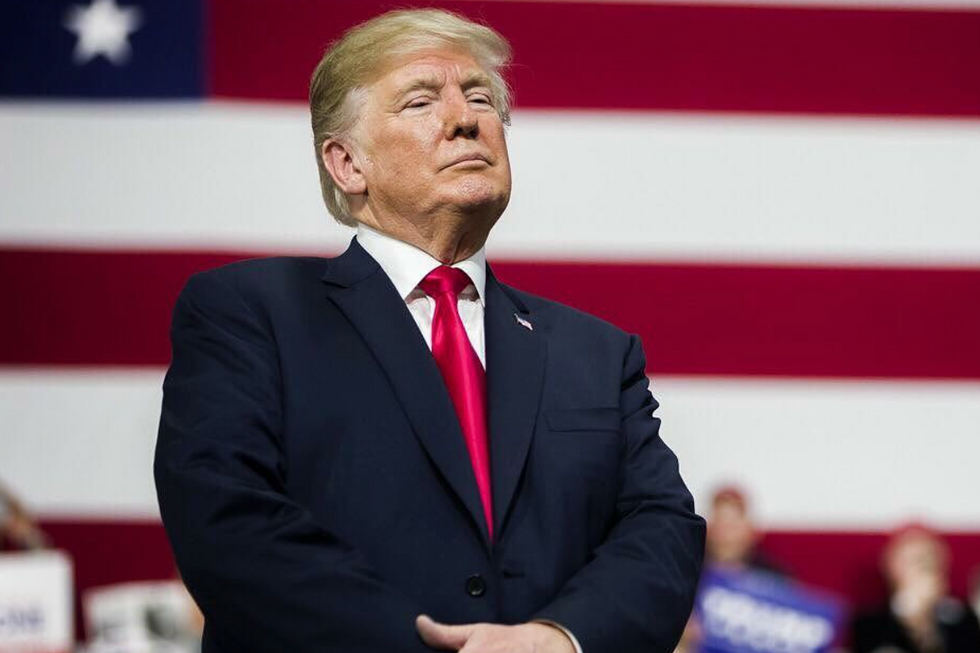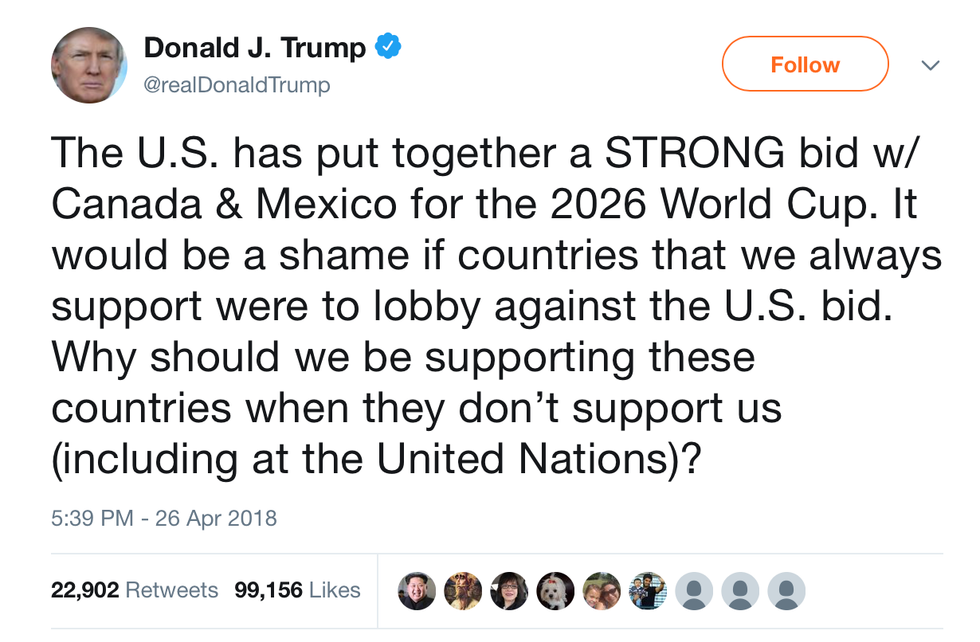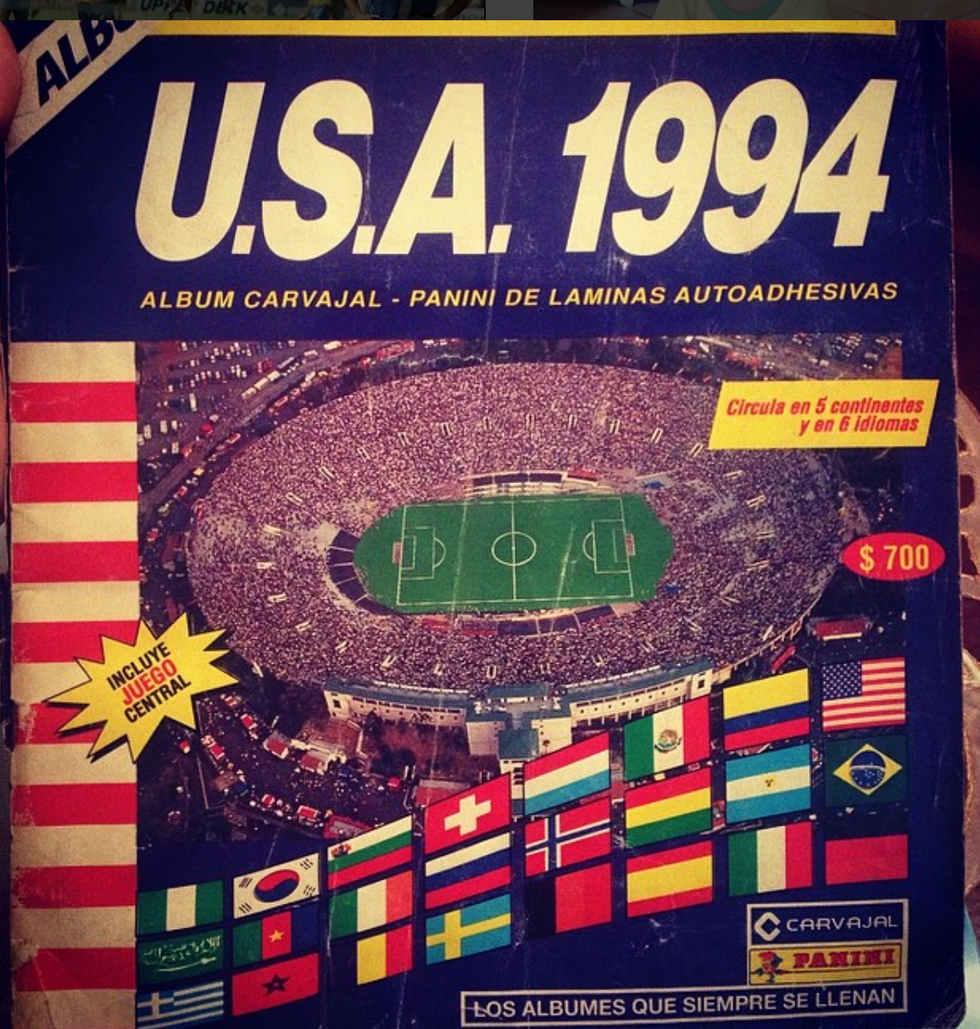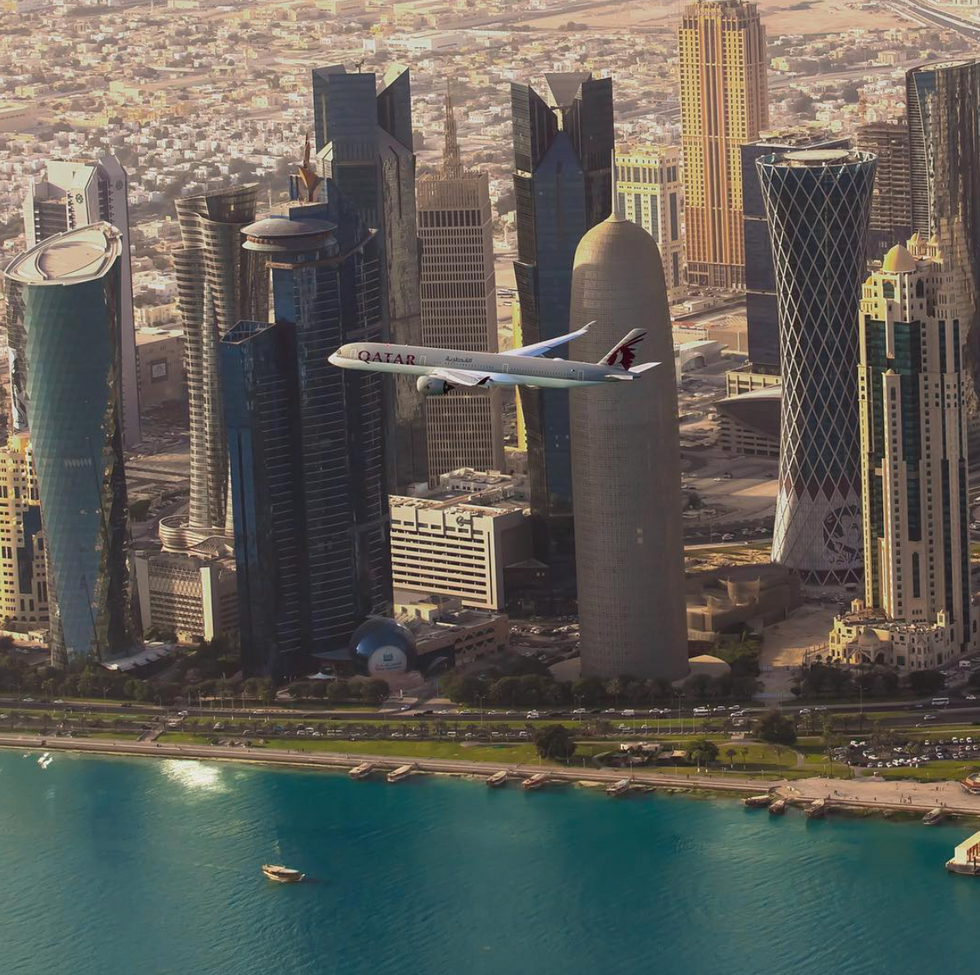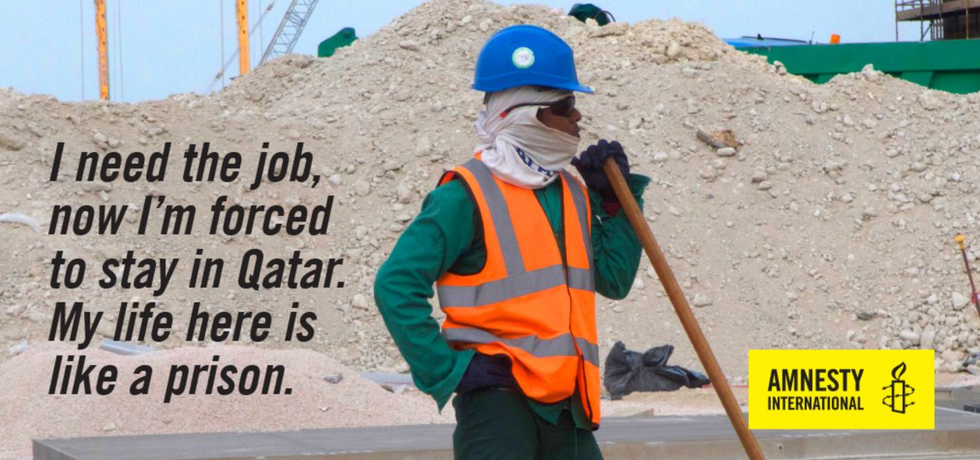Well, the 2018 FIFA World Cup is set to begin this June in Russia (an important player in the geopolitical football game that is the present day). The United States failed to qualify, so America will be uninvolved in a World Cup since the 1986 tournament in Mexico.
In four years, FIFA will hold the 2022 championships in Qatar. This will be the first time ever the world's biggest sporting event will not be held in the summer, as sweltering Qatari summers have forced the competition into late November/early December. The small Persian Gulf nation has been aggressively stepping into world affairs recently, for better or worse. The country is currently being blockaded by a Saudi-led coalition that may or may not involve the Russians. Qatar defeated the United States in a corruption-ridden host selection process that stripped US Soccer a chance to host the World's biggest spectacle.
On the eve of this summer's World Cup in Moscow, FIFA Congress will officially select the host for the 2026 tournament. Ever since America was snubbed for the chance to host in 2022, the United States has been the default favorite to land the subsequent cup. The bid to host got even stronger when the US teamed up with Canada and Mexico to form an unprecedented 'tri-bid' for the competition. It has always seemed likely that this tri-bid would win the right to host the contest. However, one thing has potentially hampered this magnificent opportunity.
President Trump is a...we'll just say he is a polarizing figure. I'll be leaving my personal opinions out of this article because my views will not land or deny the North American continent any sort of right to host a sporting event. What I will say though, is that a Trump-led White House does raise some questions that many people, both inside and outside of this country-- and the voters and non-voters on who gets to host the World Cup-- either cannot answer or do not believe can be answered at all as long as the current political leadership remains in place.
Some of these concerns are legitimate ones
--The Trump administration has been an outlet for some very nativist rhetoric, from the time he announced his campaign, to his comments about "shithole countries." As many developing countries participate in each World Cup, what kind of message would FIFA be sending to the globe by forcing players from these nations to travel into American cities?
--The current administration has also placed restrictions on travel and migration from a few of these nations, citing 'security' as their primary motive. Iran, for example, is on the list of countries where a travel ban to the US has been proposed and implemented. Given that Iran actually has a fairly decent soccer team that regularly makes the World Cup, what kind of rules would be in place for an Iranian side traveling to the United States for the championships.
Other times, sometimes this bid feels dampened by the very lead host's presence on the World Stage
--Is anti-Americanism a real, beyond-political existence? Even under the Obama administration, the US's bid lost to Qatar. With as many questions surrounding human rights, the nation's diminutive size, stadium construction and extreme heat for the oil-rich state, they still managed to beat out arguably the most prosperous and stable nation to host the cup. Were officials just trying to avoid an American-hosted World Cup at all costs?
--As unpopular as Trump's policies are at home and abroad, it feels like many people may vote against the US-led bid as some sort of revenge on America. I don't think this is appropriate because there are far more people here who do not like the job the President is doing than supporters of his. If we have a North American World Cup in 2026, it will be the celebration of, by and for the American people, not our politicians. Besides, Trump will be out of office by that year anyway.
It is clear that regardless of what one thinks of Trump's policies, he is getting behind the joint World Cup bid. While that is good in and of itself, is threatening the bid's opponents through the UN negotiating power the right way to get other nations-- who vote of the winning bid-- to get on board? I don't know. I don't think the rest of the world has quite figured him out yet either. What we do know, though, is that if the North American coalition wins, the continent will put on a great festival for the rest of the world.
Of the three nations combining to bid for the World Cup, the last time one of them previously hosted the tournament was 1994, when the US put on a show that will be primarily remembered for Roberto Maggio's penalty kick miss to give Brazil their fourth world title.
While there were skeptics in the international soccer world on whether or not the US-- a non-traditional soccer power-- could host a successful tournament, these doubters were proved wrong when the '94 competition was the highest ever attended, a record that still stands today even as the tournament has grown from 24 to 32 teams since then (Ironically the '26 World Cup will be the first with as many as 48 teams). In addition, the incredible diversity of this great nation showcased the number of sub-cultures in our melting pot, as teams such as Italy, Brazil, Mexico, Columbia, and many more teams found much more support here than they otherwise would on foreign soil.
Canada, which has a similar level of diversity to the US, would also be a host, along with Mexico, a Latin American country who's flair and passion for the sport would bring a perfect compliment for the US and Canada. The bid's critics say that Mexico and Canada combine for only six of the 16 host cities and therefore are not full hosts, but add in the fact that their populations are smaller and you get a roughly proportional amount of matches for each nation.
The alternative
The last time the United States put forth a bid to FIFA, the selection committee gave the 2022 World Cup to Qatar instead. At first, the world saw it as an opportunity for the ultra-modern nation to have all the spotlight for a month-- after all, traditionally World Cups have been in countries like England, France, Germany, Italy, etc. All great countries, but Qatar allowed FIFA to mix it up a bit.
However, if the top photo represents the tournament's expectations...
...the bottom one most likely represents the reality.
The country was already a major human rights violator. They export labor from the poorer countries in South Asia and seize their passports on arrival while paying them next to nothing and force them to live in subhuman accommodations, that is when they aren't working sweatshop hours in 100+ degree heat. And because they cannot leave the country without their passports, they are essentially slaves.
In anticipation of the World Cup, large infrastructure projects are being built, of course only to be enjoyed by the wealthy elite. At least one worker has actually been killed, when he fell to his death while working on a construction project. The intense heat creates life-threatening conditions for the thousands of workers.
All this construction is needed because unlike the United States, Qatar does not have the abundance of stadiums and other infrastructure needed to host such a big event.
The truth of the matter is that Morroco, the competing bid to the North American coalition, would not be a much better situation than Qatar. Morraco is a wonderful country, with great people. But it simply is not a competitive bid compared to the one of North America's. Nine of the 14 Morracan stadiums are not even in existence yet and must be built. The states of Florida, Texas or California have the infrastructure to host the World Cup within just months notice if they had to. Things like major highways, airports, big cities, and large foreign populations are needed to host an event like the World Cup. The United States, Canada, and Mexico all have that. Qatar and Morraco, not so much.
This is the case I rest on, and I encourage any FIFA executive who may be reading this to vote for the United States of America, Canada, and the United Mexican States as hosts for an unprecedented tri-national, trilingual, and hyper-cosmopolitan FIFA World Cup in 2026. The globe's biggest and best sporting event deserves the biggest and best monthlong celebration of soccer that the world has ever seen. North America will deliver.

